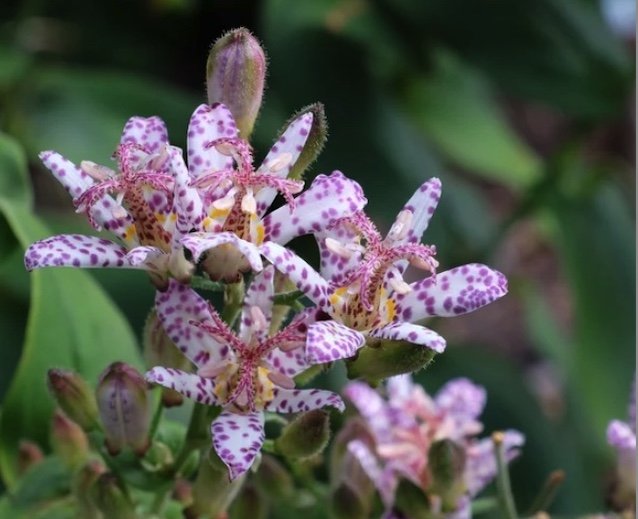Now is the time to dream big. And pulmonarias, primulas and toad lilies invade my winter dreams. As I finish my catalog order, my husband has a request, “Don’t forget to plant that purple flower that our neighbor’s cat is crazy about.” Details were never his strength, but understatement is. A recent diagnosis explains his memory challenges. I add ‘Six Hills Giant’ nepeta (a.k.a. catnip) to my order.
I have memory challenges of my own; I feel like I had this dream before. I could have sworn I ordered the same plants years ago and planted them among the hellebores. I fill in the garden order form with this pesky feeling that I’ve done this all before.
Then I remember. I did do all this before. All these plants did well in the shade garden for a few seasons, but then one spring they disappeared. What happened to them? Too wet? Should I be concerned about my memory? Or should I just go with this new feeling: I can’t wait to see the beautiful fuzzy gray leaves of the pulmonaria ‘Twinkle Toes’ when it arrives at my door. I get to fall in love all over again.
Is the beauty of a plant any less if we no longer remember its name? Last summer my husband asked, “What’s that big lime-green plant growing on the patio?” My answer: “I have no idea.” Thank God for apps that identify plants – I use them more than ever. I take a photo and drag it into Pl@nt.Net and violà – it’s Japanese spikenard – ‘Aralia Sun King.’
These plant apps help me identify diseases, too.
As I pass the witch hazel in bloom with my husband in hand, he wonders what is this bush in bloom. To live with someone who is losing his memory is a “Perpetual Spring.”
And gardens are a place for many things: to dream, to grieve, to remember, to take in the aroma of the earth; to feel the sun on your face when memories and words no longer arrive with Spring.
In Perpetual Spring by Amy Gerstler
Gardens are also good places
to sulk. You pass beds of
spiky voodoo lilies
and trip over the roots
of a sweet gum tree,
in search of medieval
plants whose leaves,
when they drop off
turn into birds
if they fall on land,
and colored carp if they
plop into water.
Suddenly the archetypal
human desire for peace
with every other species
wells up in you. The lion
and the lamb cuddling up.
The snake and the snail, kissing.
Even the prick of the thistle,
queen of the weeds, revives
your secret belief
in perpetual spring,
your faith that for every hurt
there is a leaf to cure it.

